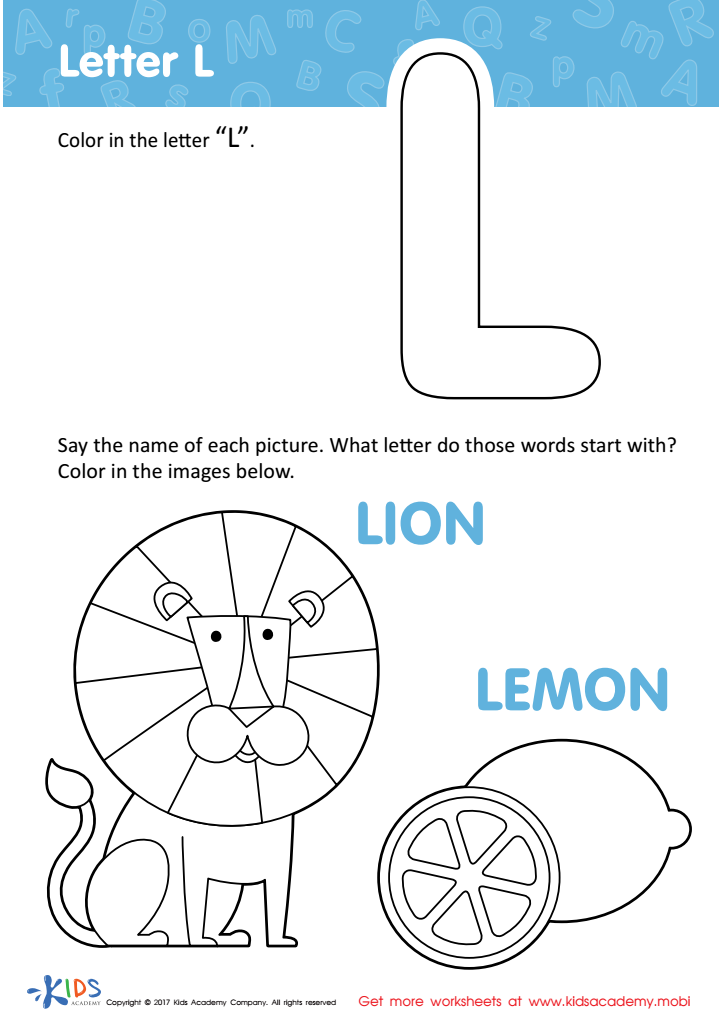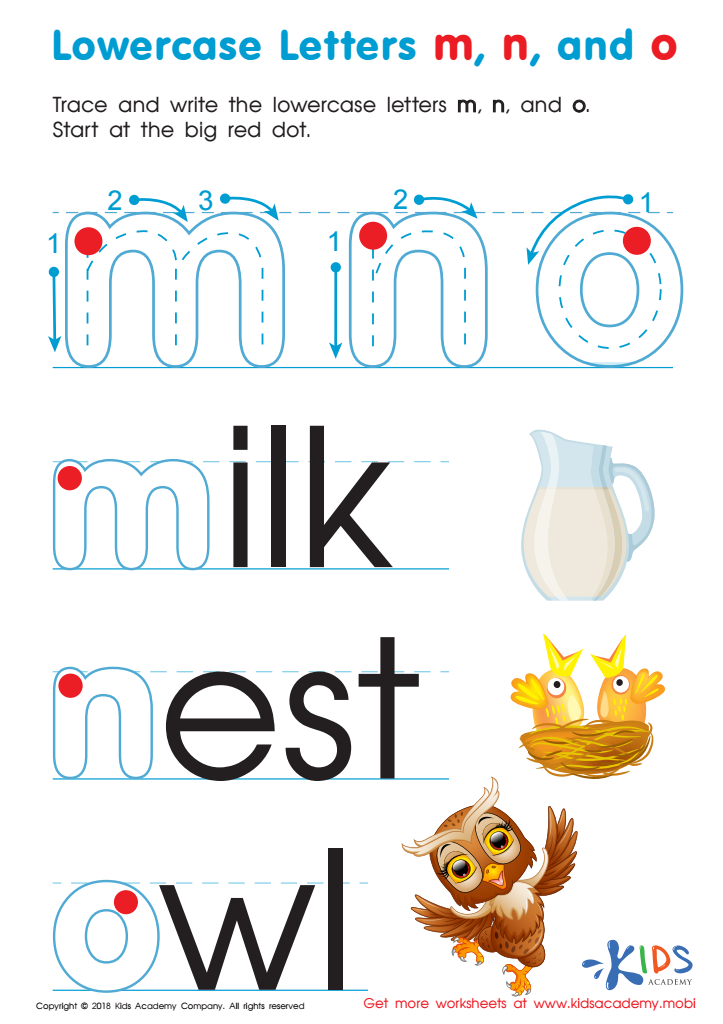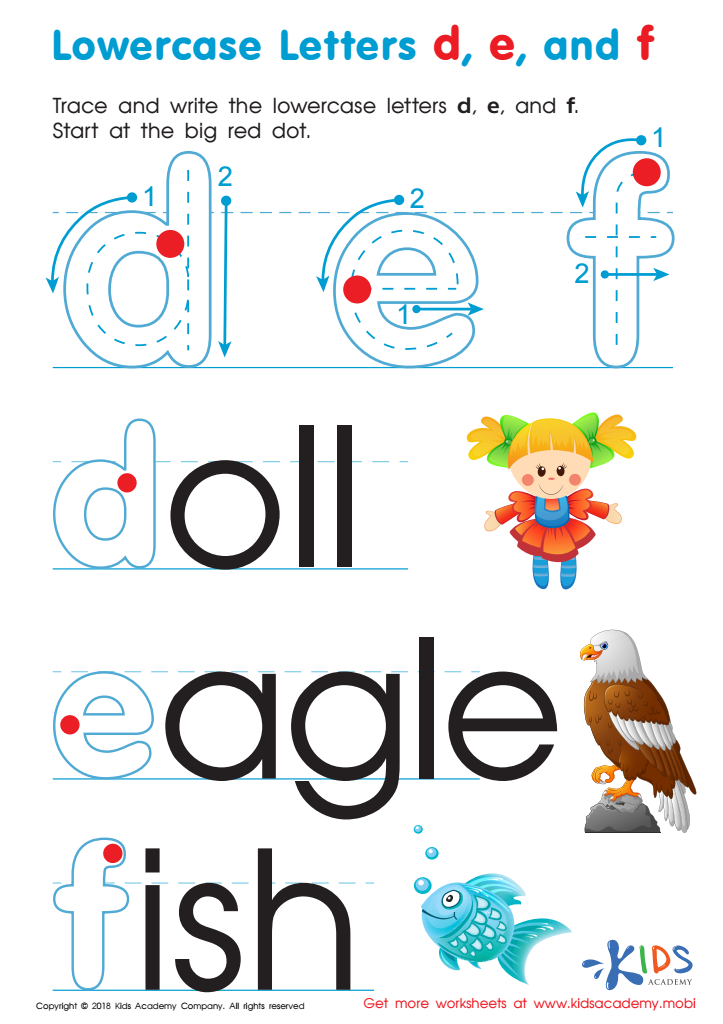Letter-sound association Normal Letter Recognition Worksheets for Ages 3-4
4 filtered results
-
From - To
Introduce your youngest learners to the wonderful world of letters and sounds with our expertly designed Letter-Sound Association Normal Letter Recognition Worksheets for ages 3-4. Perfectly tailored for preschoolers, these engaging worksheets help children identify and associate individual letters with their corresponding sounds. Through fun and interactive activities, kids enhance their phonemic awareness and build a strong foundation for reading fluency. Each worksheet is crafted by educational experts to support easy and effective learning. Ideal for parents and teachers committed to early literacy skills, these resources make the alphabet adventure enjoyable and memorable for little learners.


Letter E Coloring Sheet


Letter L Coloring Sheet


Lowercase Letters m n o Worksheet


Lowercase Letters d e f Worksheet
Ensuring early letter-sound association and normal letter recognition for children aged 3-4 is crucial for several key reasons. At this developmental stage, children's brains are incredibly receptive to learning and forming foundational skills. Introducing them to the basics of literacy helps nurture their cognitive development.
First, letter-sound association lays the groundwork for reading. When children understand that letters represent specific sounds, they can begin to decode words, turning written symbols into spoken language. This competency is essential for later developing more complex reading and comprehension skills.
Second, normal letter recognition is pivotal for both reading and writing. Recognizing letters swiftly and accurately allows children to read words and sentences fluently, reducing frustration and promoting a love for reading.
Additionally, mastering these skills early not only bolsters academic success but also boosts a child's confidence and self-esteem. Children who enter kindergarten with letter-sound associations and recognition are by far more prepared to tackle advanced learning, which reflects positively in their overall academic trajectory.
Moreover, engaged parents and teachers can turn the learning process into a fun, interactive experience through games, songs, and books, providing emotional support and encouragement that further enhances a child's eagerness to learn. This foundational support creates lifelong learners, setting the stage for future academic achievements.
 Assign to My Students
Assign to My Students















